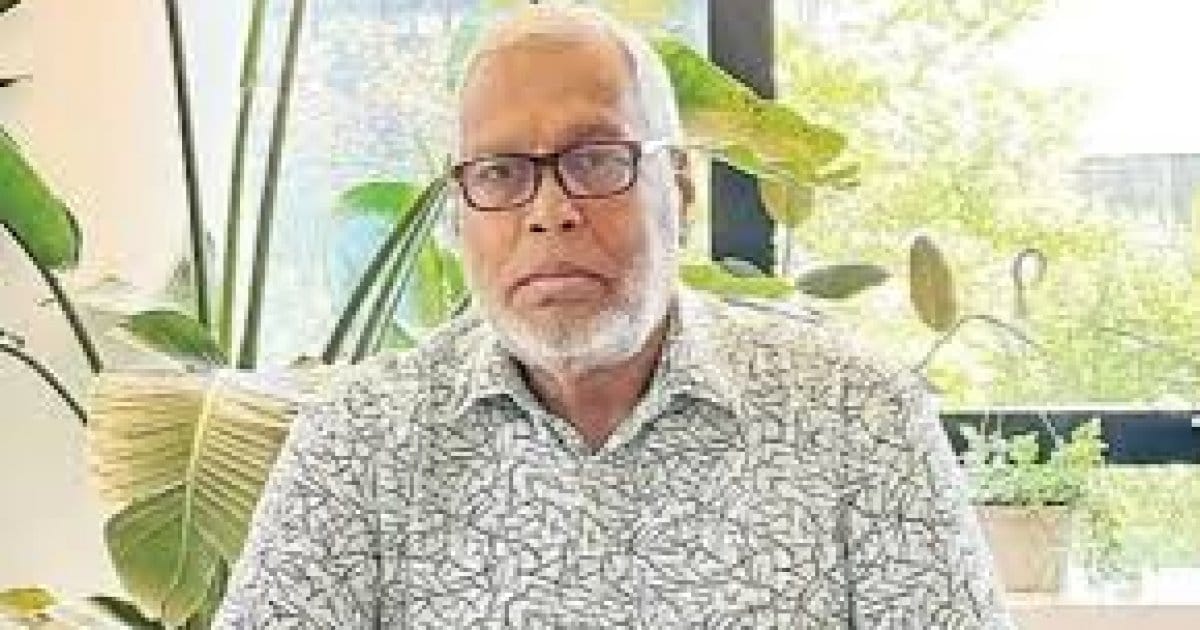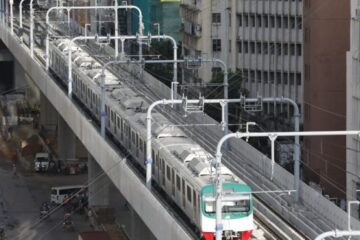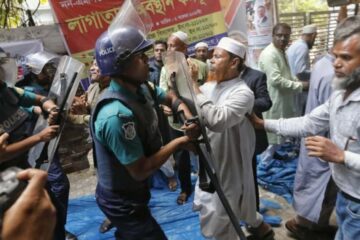Energy Adviser Fouzul Kabir Khan has called for a significant reduction in liquefied petroleum gas (LPG) prices, stating that the cost of a 12kg cylinder should be brought below Tk1,000 to ease the burden on consumers and industries.
Speaking at a policy dialogue on Bangladesh’s LPG sector organised by Bonik Barta at a Dhaka hotel yesterday, Fouzul said consumers were paying unjustifiably high prices due to inefficiency and profiteering in the private sector.
“LPG is mostly handled by the private sector, but we are not seeing the efficiency we should. The current price of a 12kg cylinder is around Tk1,200, but it should be below Tk1,000,” he said.
“What’s worse, adding insult to injury, is that these Tk1,200 cylinders are often sold for Tk1,400 to Tk1,500 in the market. This must stop.”
The adviser emphasised that accountability is essential in the energy business. “Those of us responsible must take ownership. Irresponsible business practices cannot continue where no one is held accountable,” he added.
Fouzul urged the private sector to enhance efficiency, reduce logistics costs, and abandon what he described as a “culture of profiteering.”
“Businesses must act responsibly. They must abandon the desire to accumulate vast wealth abroad and move away from the culture of money laundering,” he further said.
“If the country itself doesn’t survive, where will you live? Those who laundered money—where are they today? I hope they will reflect on this.”
He outlined two key policy goals: reducing LPG prices for household use and ensuring affordability for autogas and industrial consumption.
Industrial use hampered by high prices
The adviser noted that high LPG prices were limiting its use in industries and power generation.
“Akij Group, for example, uses LPG but cannot increase its usage because of high costs. Reducing prices is therefore a key challenge for industrial expansion,” Fouzul said.
He also urged researchers to provide practical recommendations for expanding the LPG sector and supporting government strategy.
Earlier, on October 7, the Bangladesh Energy Regulatory Commission (BERC) reduced the retail price of a 12kg LPG cylinder by Tk29, setting the new price at Tk1,241, or Tk105.87 per kg, down from Tk1,270 in September.
Under the revised rates, reticulated LPG is priced at Tk99.65 per kg, compared to Tk102.12 in the previous month.
Bangladesh imports propane and butane—the main components of LPG—and BERC adjusts domestic prices each month based on the Saudi Aramco Contract Price (CP), which averaged $482 per tonne this month.
Fouzul alleged that during the previous government’s tenure, several power-plant licences were issued “through corruption,” despite a worsening gas shortage.
“Illegal gas connections were also provided to factories and households. All these misdeeds were committed by our politicians,” he said.
Despite the crisis, the adviser expressed optimism about recent steps to boost domestic gas exploration.
“We have intensified onshore exploration, and the progress has been satisfactory. While production has been declining by around 200 million cubic feet per year, we have managed to add about 70 million cubic feet recently,” he noted.
To offset the supply shortfall, the government has increased imports of liquefied natural gas (LNG), despite its high cost.
“We are now importing LNG to meet the deficit. Yes, it’s expensive and has faced criticism, but we had no alternative. Otherwise, industries and exports would collapse,” Fouzul added. “Last year we imported 84 cargoes; this year, it’s 108.”
The adviser reiterated that bringing LPG prices below Tk1,000 would not only help households but also make industries more competitive and sustainable in the long run.



